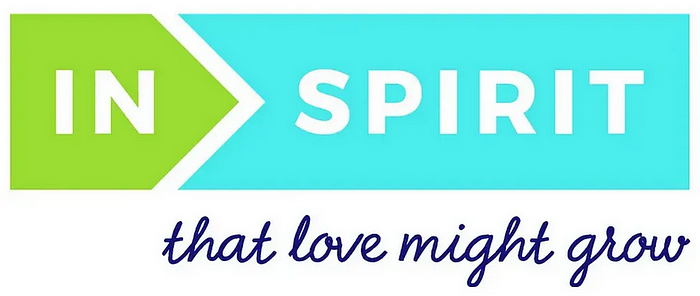
Tending our Yearning for a Cosmic Grownup
The yearning I associate with wanting to be saved from myself and from life’s risks and perils comes with an accompanying physical sensation. For me, it lives in my chest, behind my lungs, above my diaphragm. When I feel anxious and want someone to swoop in and care for me, I feel like something within me is collapsing. The sense that the inside of my midsection could drop to the floor was my first association with the term, “Insecure,” in that it felt like part of me wasn’t bolstered sufficiently to stay in-place.
My first memories of the sensation date back to the third grade, when I had a teacher who sometimes left the room unattended and came back to mayhem. She would slam the door, and I’d be shot-through with fear. Yesterday, I was in an airline security line and discovered that the person helping me get my bags on the belt was the cousin of the biggest of the troublemakers. As we chatted about how her cousin is doing these 45 years later (!) I was able to pull up that anxious, fear-filled wobbliness as though a loud door had slammed just behind me at that moment.
All adults have vestigial desires to be held, protected, and saved from life’s harsh elements. In his prayer practice of “Welcoming Prayer,” the live-action corollary to “Centering Prayer,” Father Thomas Keating teaches four releases:
- I release my need for power and control
- I release my need for love and esteem
- I release my need for safety and security
- I release my need to change anything
Before praying those four releases, the spiritual practitioner is encouraged to locate where in their body they feel they’re losing connection with God, and to thank that feeling, unpleasant as it is. This acknowledgement gives us permission to accept that feeling rather than attempting to swat it away. We thank the insecure feeling for the message it’s sending, surely to protect us from doing something harmful to ourselves or others amidst our un-groundedness.
As I write this ‘blog, the group of students I and a colleague will lead on an educational travel seminar in Hawai‘i are resting up for our first day. Everyone got in safely, and the group is already feeling relaxed together, eager to get to know each other better. But yesterday, I had a moment.
I am flying separately from the students so that I can stop en route back to New Haven to see family in Colorado. I woke to a message at my zero-dark-thirty wake-up call that the first of my two flights had been canceled, and the airline had rerouted me with a new itinerary that was just… no. I went to the airport, worked with a gate agent, and we found an alternative that meant virtually no interruption to my plans. I reconnected with the group in baggage claim in Honolulu, still awash in the warm bath of positive feelings from having felt insecure and then having been rescued.
The Christian faith isn’t just about reason, belief, ethics, and theological meaning-making. It’s also a holding container for our emotions. Insecurity is a well-documented emotion in the early Christian movement. The disciples expressed deep insecurity about what would happen to them when Jesus was no longer with them, to the point where they begged him to stay. As he infused his followers with the Holy Spirit at the Pentecost, he honored their anxiety and gave them exactly what they asked for, and what we need: through the Holy Spirit’s presence, Jesus has never left us.
Tomorrow marks Epiphany, the day the Wise Men said, “This is the one.” Sunday, the church celebrates the Baptism of Jesus, where John the Baptist says, “This is the one.” I anticipate many heart-sinky moments over the week to come, where insecure feelings arise in my midsection. I’m the one who’s supposed to be in-charge, after all, but I often don’t know the right answer to our group members’ questions, because I’m new to this place and this particular role.
Here’s the good news: I have the Holy Spirit and can give over insecure feelings to it in real time: Holy Spirit, take my need for power and control, take my need for love and esteem, take my need for safety and security, take my need to change things that aren’t within my control to change. Take ’em all. I don’t need ’em, and you can handle them, whereas I can’t.
I suspect that communities would be healthier, and the world a better place, if insecure people didn’t try to self-medicate by giving their fears over to demagogues who numb their anxieties with easy answers. If people could manage their anxieties better, might peace reign? We all yearn for a cosmic grownup who can swoop in and fix everything. Except Christians actually have one of those, and it’s so much more powerful than a Marvel superhero (fictional) or political strong-man (lurid fantasy). Unlike fictions and fantasies, the Holy Spirit allows us to hold responsibility for ourselves and those in our care while simultaneously setting us free.
